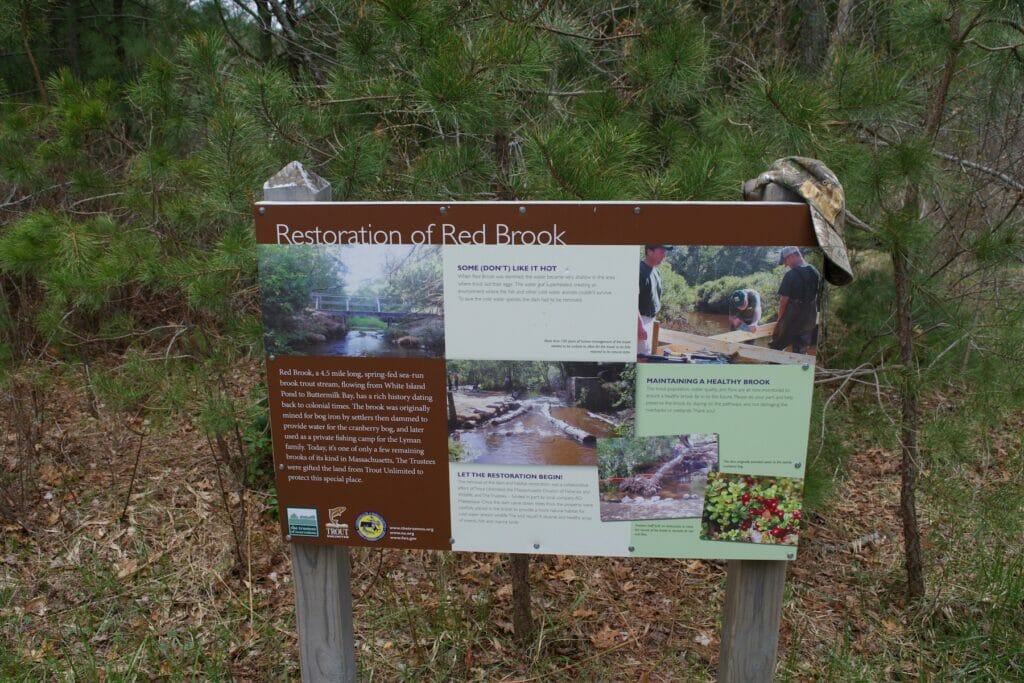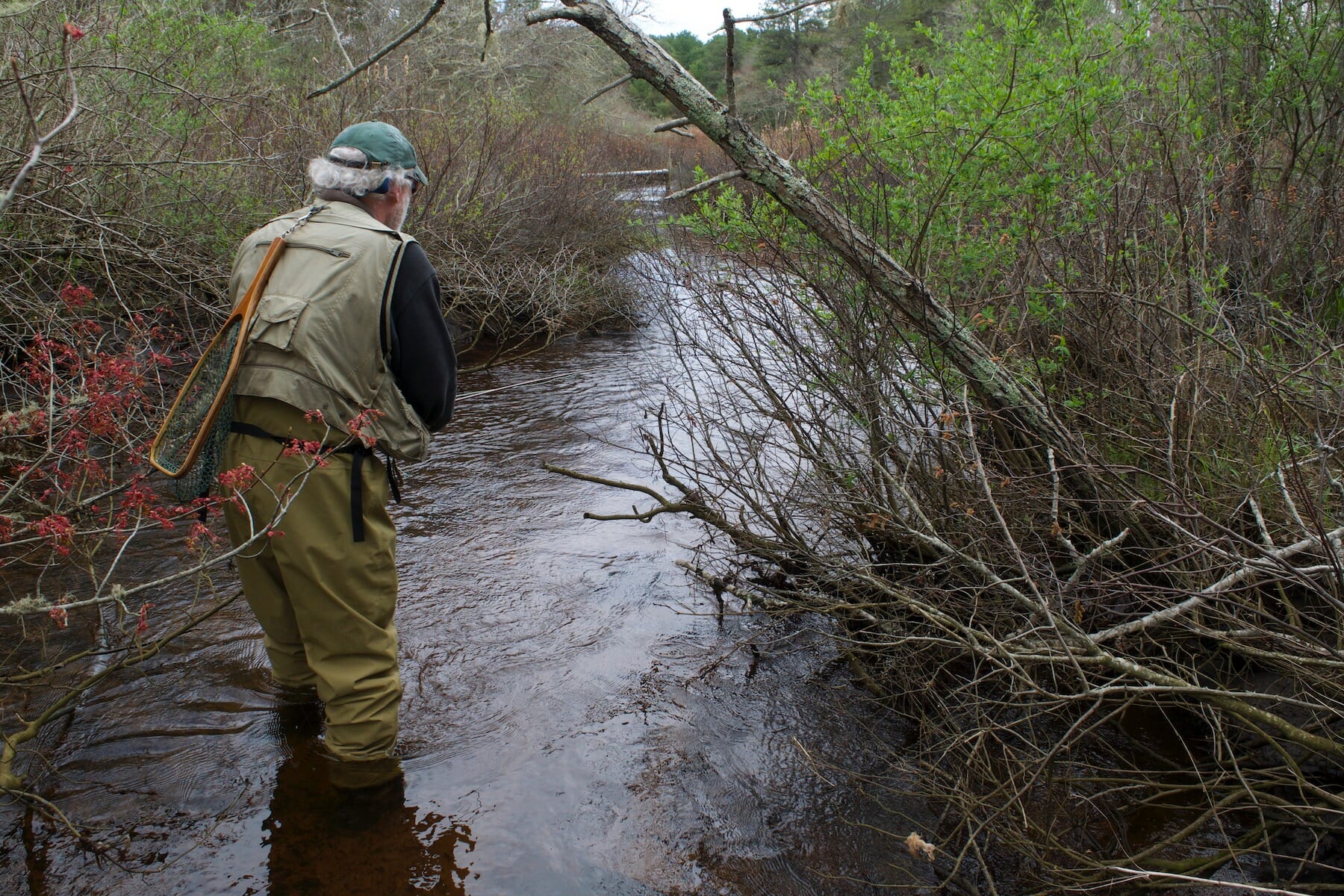There are wins.
And there are landslide victories.
Trout Unlimited and out allies are enjoying one of the latter, after the citizens of a small town near Cape Cod resoundingly defeated a proposed rezoning that would have allowed for massive development in the headwaters of Red Brook, a small, spring-fed stream where TU and our partners have invested millions of dollars and tens of thousands of hours to help protect salter brook trout.
At a massive public meeting on April 10, in Wareham, Mass., 954 residents voted on a proposal to create a “Hospitality, Recreation and Entertainment” overlay district on 756 acres of pine barren land.
Of those, a whopping 813 voted “no,” to just 141 who voted in favor of the change, according to coverage in Wareham Week Today.
Had the proposal been approved it could have led to development of hotels, multi-family homes and possibly even a horse track and casino.
Red Brook is among just a few streams south of Maine to hold a viable population of so-called “salters” — brook trout that move back and forth between fresh and saltwater.

Trout Unlimited has been working on Red Brook for three decades. In the 1980s, TU worked with the Lyman family to preserve 650 acres through which the stream flows. Volunteers have spent thousands of hours improving habitat within the stream.
The story of Red Brook’s protection and restoration has elicited attention well beyond Wareham, including in a 2017 feature in TROUT magazine.

All that effort was put at risk by the proposed change to zoning on the large parcel in the stream’s headwaters, which currently allows only single-family homes on lots of three acres.
The proposal elicited fierce opposition from Trout Unlimited members and supporters, among many others.
As the April 10 meeting and vote approached, volunteers with TU chapters and the Massachusetts Council rapidly initiated a campaign to advocate for the defeat of the proposal. Donors helped to raise more than $15,000, which helped with advertising to urge citizens of the town to vote against the proposal.

“Big box developments such as the one proposed in the headwaters are as common as bird poop on a summer windshield,” TU President and CEO Chris Wood wrote in a column prior to the vote. “The people of Wareham can send a powerful message to communities across New England by voting ‘no’ on April 10 and demonstrating that we are not a desperate nation willing to fill in every open space with concrete, glass and metal.”

Other organizations to oppose the proposed zoning change included the Wareham Land Trust, the Southeastern Massachusetts Pine Barrens Alliance, the Buzzards Bay Coalition, the Trustees, the Community Land and Water Coalition, the Sea Run Brook Trout Coalition, Wildlands Trust and the Northeast Wilderness Trust. The Herring Pond Wampanoag Tribe has also opposed the measure.
While there may have been a sense of how the vote may have gone, it’s hard to imagine anyone expecting just how big the margin would be.
The rout was welcome to all who so quickly mobilized to ensure the protection of one of Massachusetts’ natural treasures and will, we can hope, show the power of a community coming together to fight for something it loves.



